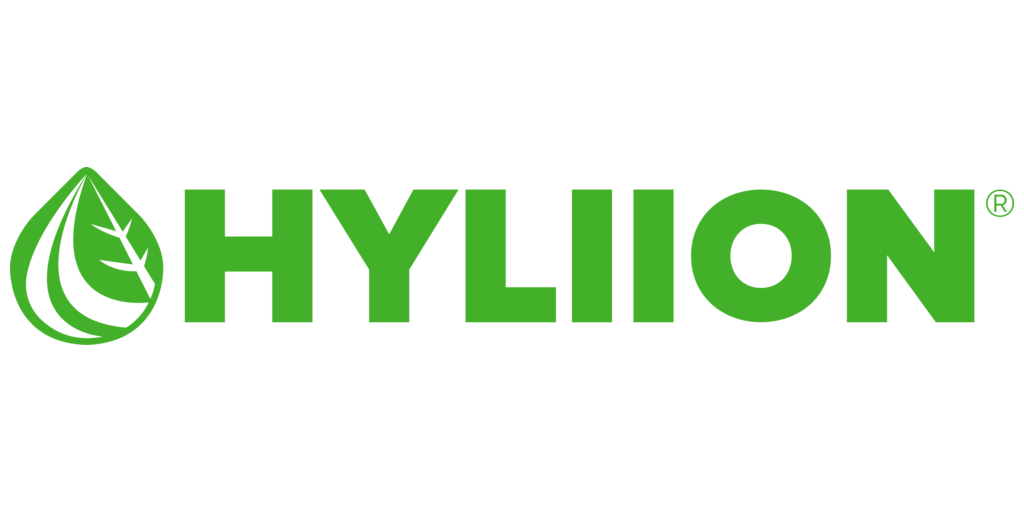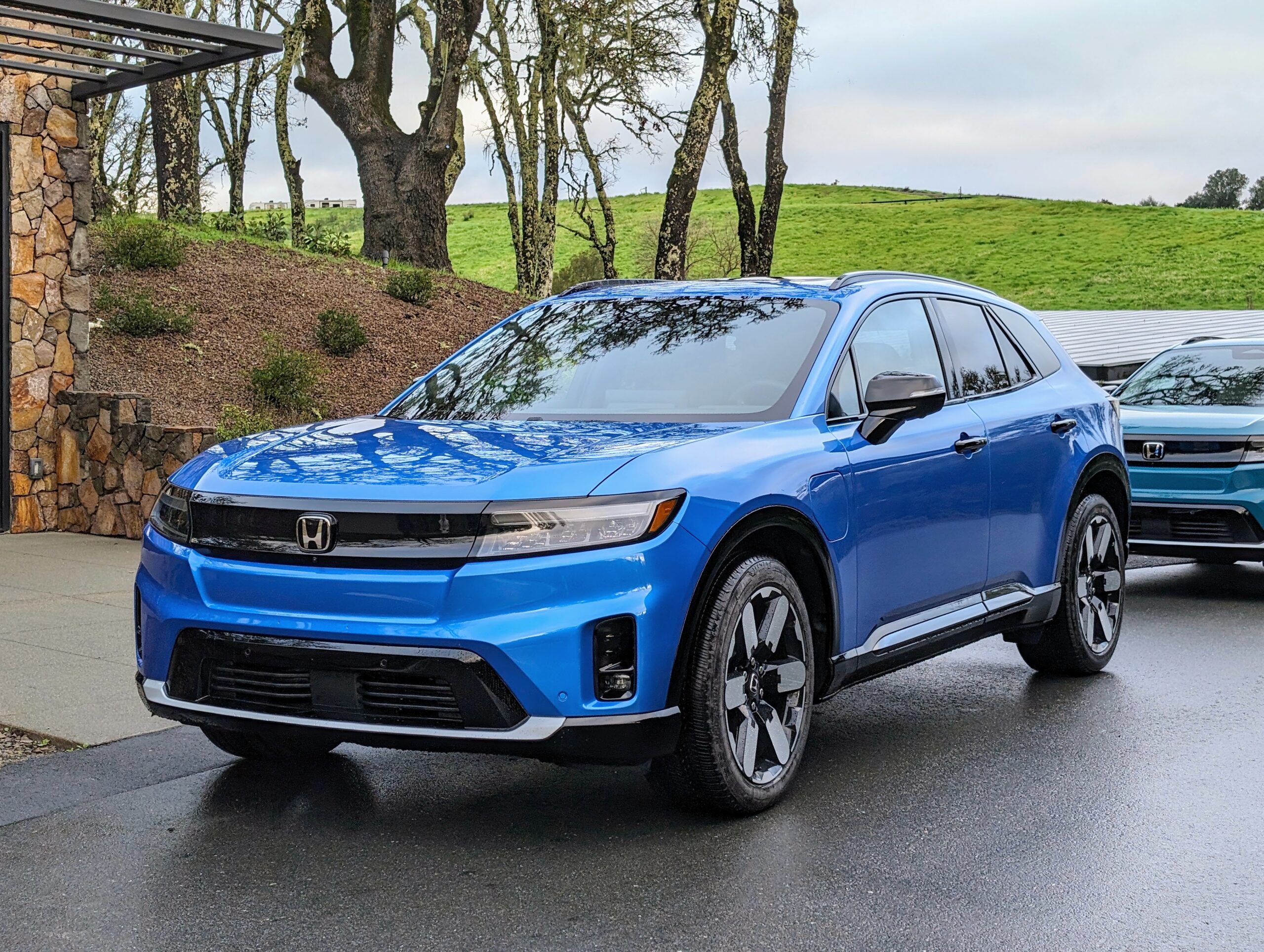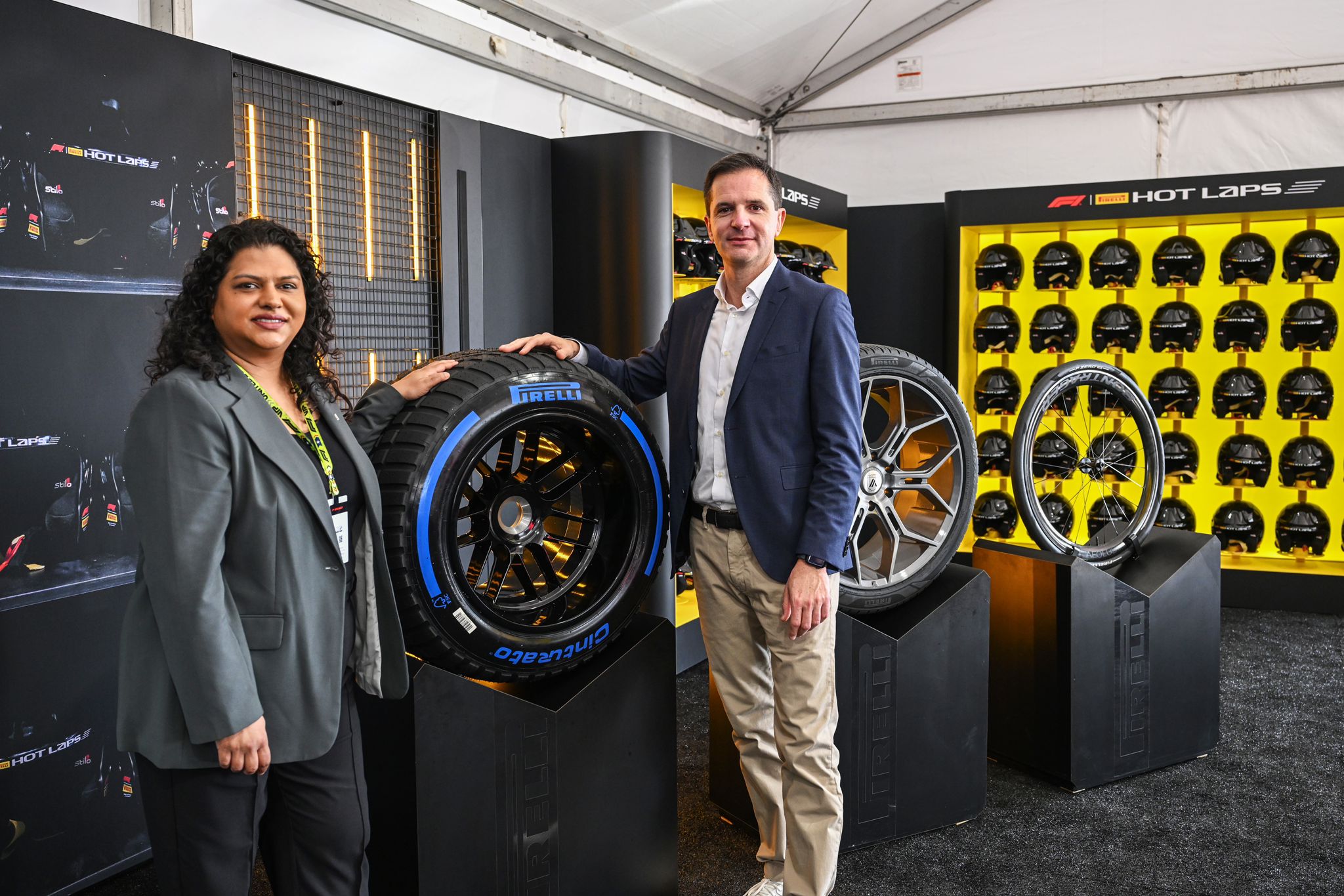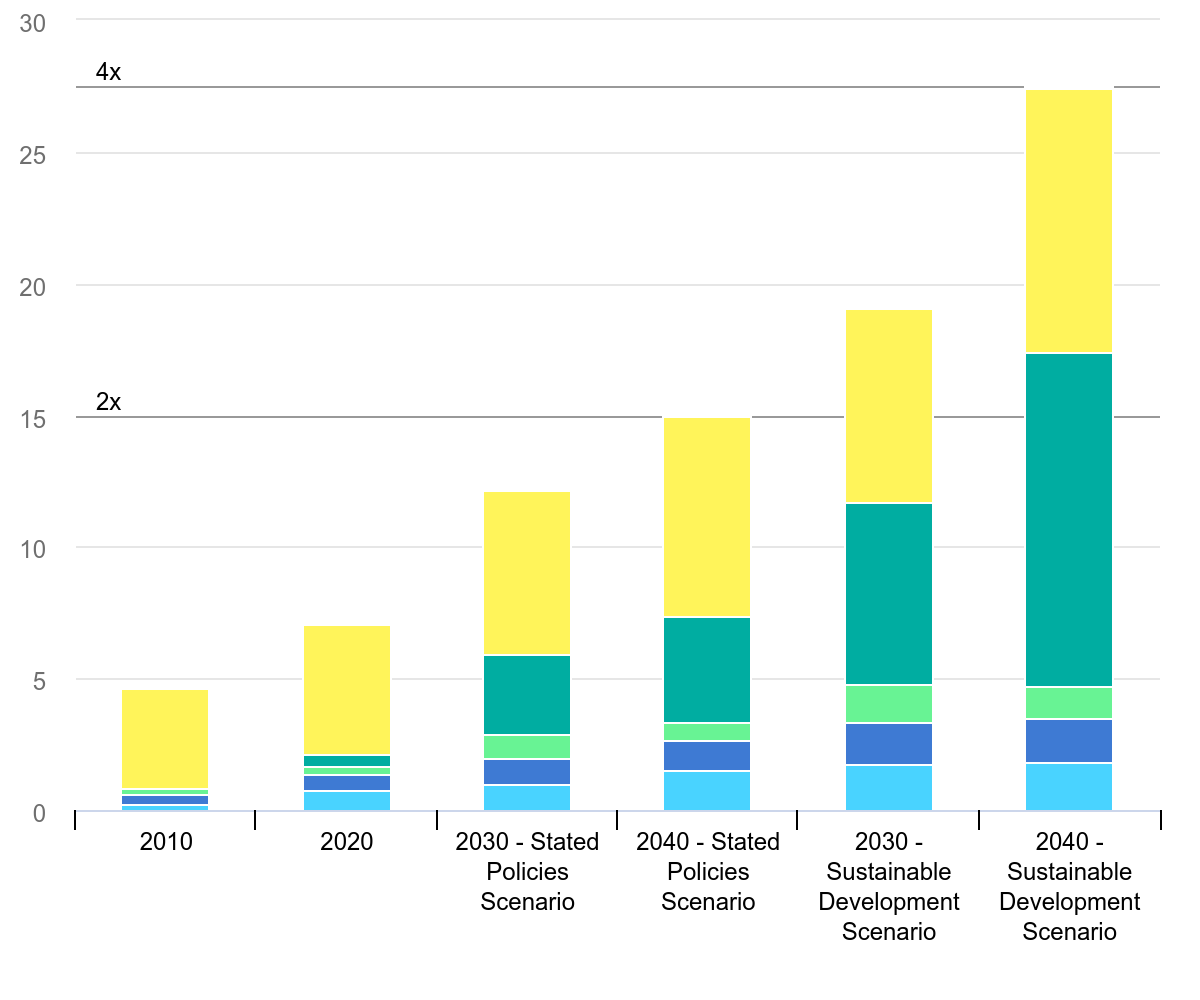
Beer is perhaps the oldest commercial product in human history. According to Wikipedia, the first chemically confirmed barley beer was made in what is now Iran in 5000 BC. The written history of ancient Egypt and Mesopotamia records the use of beer, and the drink has spread throughout the world. A 3,900-year-old Sumerian poem honoring Ninkasi, the patron goddess of brewing, contains the oldest surviving beer recipe. In China, residue on pottery dating from around 5,000 years ago shows that beer was brewed using barley and other grains.
An Australian ditty sung by the Clancy Brothers chronicles the trials and tribulations of a local watering hole that has no beer to offer to its patrons. Known as The Pub With No Beer, it tells in one verse the tragic tale of Billy the blacksmith who goes home cold sober to his loving wife. “He walks into the kitchen, she says you’re early my dear. Then he breaks down and tells her the pub’s got no beer.”
The Wikipedia post ends with this statement: “The invention of bread and beer, some argue, caused humanity to develop technology and to build civilization. [If you haven’t made a donation to Wikipedia this year, please consider doing so. It’s about the only source of news on the internet that isn’t controlled by a tyrant.]
Myself, I have been a beer lover since an early age. My old Irish grandfather owned a bar in Newport, RI, when it was a hard-drinking Navy town. When I was 6, he would dress me up in a sailor suit and set me up on top of the bar with a shot glass full of Narragansett beer. When I chugged it down, the sailors went crazy, whistling and stamping their feet. Today, he would be arrested for child endangerment, but it probably explains why I have been a bit of an extrovert most of my life.
Beer & Electric Trucks
With that rather lengthy preamble, I want to tell you a story about beer that fits in nicely with our mission here at CleanTechnica. Carlsberg is a Danish brewing company that sells quite a bit of beer throughout Europe. It is especially popular in Sweden, where the company maintains a fleet of trucks to bring ingredients to the brewery and then distribute its products throughout the country.
Carlsberg Sweden has partnered with Swedish logistics company Einride to transition away from fossil fueled trucks and add battery-electric replacements to its fleet. The first electric trucks are expected to go into service early next year.
Carlsberg Sweden says soon all beverage transportation between its brewery in Falkenberg, the water factory in Ramlösa, and the trans-shipment terminals in Gothenburg, Malmö, and Helsingbor will be handled by electric trucks. The sustainable transport solution for southern and western Sweden has been developed together with the freight mobility company Einride to make joint progress towards a zero carbon distribution network.
Carlsberg Sweden works continuously to reduce the carbon footprint in all parts of the business as part of Carlsberg Group’s zero emissions strategy. Electric trucks will also transport products to the packaging company Ball in Malmö, aluminum cans to Falkenberg and Ramlösa, as well as transportation from Ramlösa to Falkenberg and some direct distribution from Falkenberg to wholesale customers in Halmstad.
Peter Hammarstedt, CEO of Carlsberg Sweden, says, “We started our collaboration with Einride in the fall of 2022, when we electrified the heavy warehouse transportation in Halland. In the spring of 2023, we expanded the collaboration by adding another electric truck that runs daily between Falkenberg and Ramlösa. Now we are taking the next step by making a big investment in a sustainable transport solution for the southern and western parts of Sweden, which will significantly contribute to a reduction of our carbon footprint and push our progress towards a net zero value chain.”
A total of eight crews, consisting of electric trucks from DAF with trailers (51 pallets per crew), will drive the routes. Charging infrastructure will be installed by Einride at strategic locations, including the brewery in Falkenberg and at the water factory in Ramlösa to recharge the trucks while they are being loaded and unloaded. The transition is set to take place early in 2024.
The electric truck fleet will be operated, planned, optimized, and monitored by the mobility platform Einride Saga. The expanded partnership is expected to electrify approximately 7,650,000 transport kilometers in five years and reduce carbon emissions during that time by 12,300 tons compared to the diesel trucks that have serviced those routes previously. That is equivalent to taking 428 diesel cars driving 200 kilometers a day for a year off the road.
Carl Ceder, vice president for Nordic operations at Einride, says “We strive for collaborations with forward-thinking companies to actively reduce global carbon emissions. It is a pleasure to work with customers like Carlsberg Sweden and assist them on their journey towards sustainable freight, proving together that the time has come for a large-scale transformation of heavy transportation, even over longer distances. Carlsberg dares to challenge old truths and break new ground through digitization and electrification, to create real change.”
Einride says the transition to electric transportation will allow Carlsberg Sweden to reduce its transport emissions by up to 95% compared to using diesel-powered trucks on its regular routes.
There’s more to zero emissions and sustainability than ditching diesel trucks, however. Carlsberg is also planning to use more aluminum cans and fewer of its iconic green bottles. Aluminum is lighter than glass and easier to recycle.
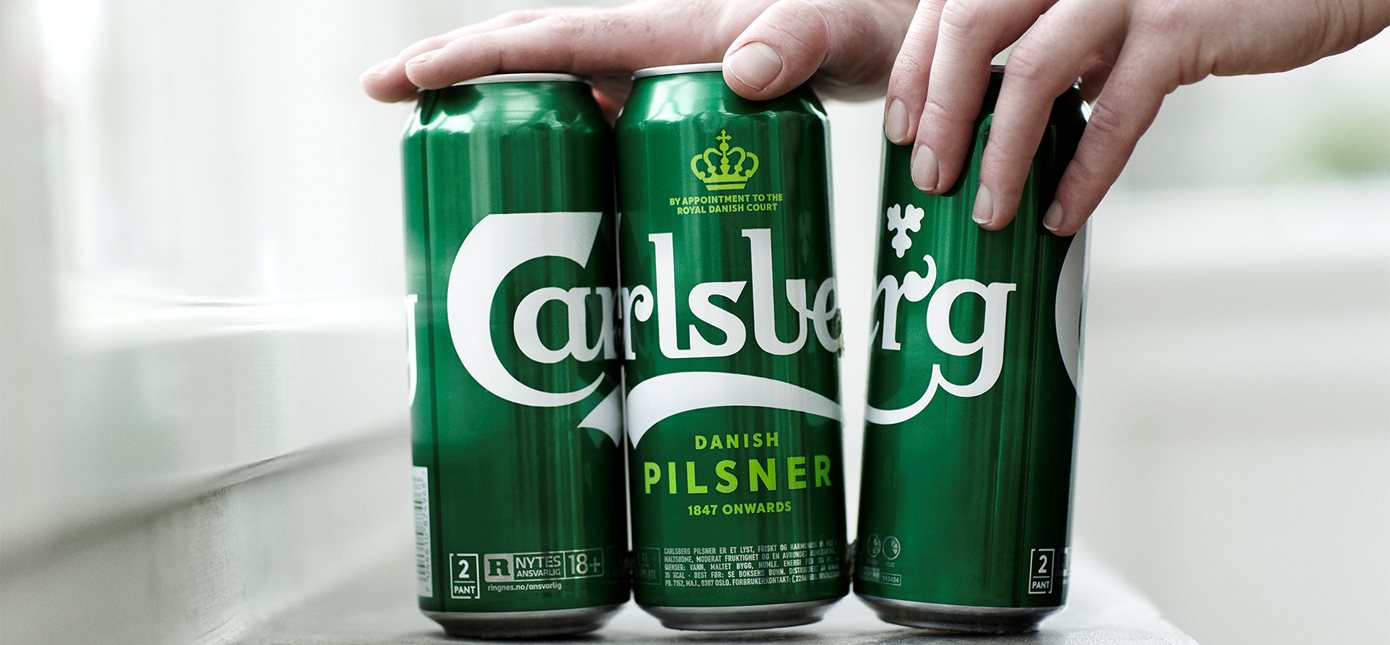
Snap Pack courtesy of Carlsburg.
To reduce plastic packaging. Carlsberg has introduced Snap Packs in several countries that use a special glue that makes the cans of beer stick to each other, reducing the amount of plastic used by 76%. Bottles made of fiber are also being worked on. In Norway and Sweden, more recycled plastic is used in the PET bottles, while at the same time they have reduced the use of plastic in each bottle.

The Takeaway
It is wonderful news to hear that one of Europe’s great breweries is taking a sustainable planet so seriously. Hopefully its activism will rub off on some of its peers. There is an interesting side note to all this. Traditionally, the company’s trucks are seen with its slogan on the side — “Probably The Best Beer In The World.” The new electric trucks have a new slogan that says “Probably The Least Thirsty Truck On The Road.” It’s nice to see a company take a lighthearted approach to things.
However, the best beer in the world hands down is Old Scotia Ale, obtainable solely within the province of Nova Scotia. In the now nearly 7,000-year history of beer, it is far and away the champion and well worth a trip to the Maritimes to find out for yourself what makes it so good.
A hat tip to Are Hansen, chief correspondent at the CleanTechnica Norway desk.
I don’t like paywalls. You don’t like paywalls. Who likes paywalls? Here at CleanTechnica, we implemented a limited paywall for a while, but it always felt wrong — and it was always tough to decide what we should put behind there. In theory, your most exclusive and best content goes behind a paywall. But then fewer people read it! We just don’t like paywalls, and so we’ve decided to ditch ours. Unfortunately, the media business is still a tough, cut-throat business with tiny margins. It’s a never-ending Olympic challenge to stay above water or even perhaps — gasp — grow. So …

